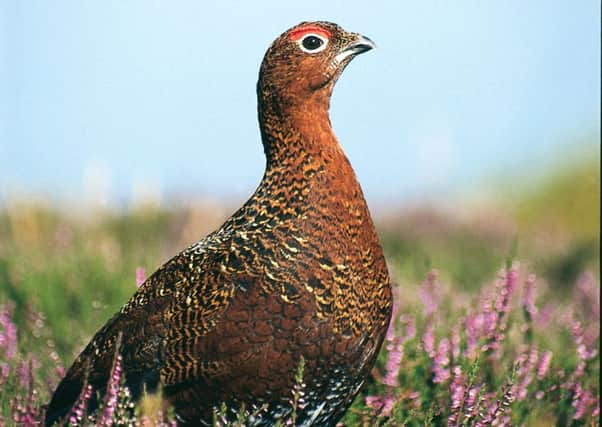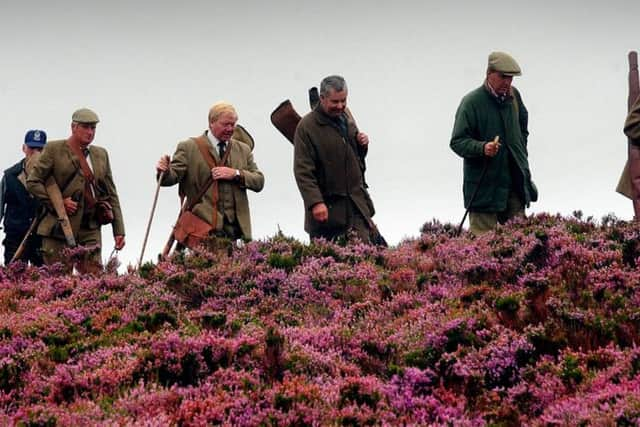Inglorious twelfth: Grouse season will be hit by poor weather


Experts warned yesterday it will be far from a Glorious Twelfth with the British weather not only dampening the spirits of those hoping for a glimpse of summer sunshine it is also affecting wildlife and has created some of the worst breeding conditions in living memory for the 2015 grouse shooting season.
It is predicted around 40 per cent of days in the season will be lost, with parts of the region affected amid concerns those communities who rely on the grouse shooting season will be hit hard.
Advertisement
Hide AdAdvertisement
Hide AdAmanda Anderson, director of the Moorland Association, whose members manage one million acres of England’s uplands, said higher ground in the Yorkshire Dales had been affected by the wet, cold weather, which has left heather in a poor condition and grouse hungry. It has also resulted in a lack of insect life for chicks to feed on.


“The chicks eat insects for the first few days of their life and quite a few will have died just through starvation,” she said.
Late spring snow, extensive frosts, persistent low temperatures and heavy rainfall plagued the crucial nesting and hatching period from May through to July, affecting many moorland ground nesting birds.
A series of severe hail storms, which caused localised damage to cars and houses, swept some moorland areas on July 1 which may well have killed large numbers of curlew, lapwing, golden plover and grouse chicks in a few short hours.
Advertisement
Hide AdAdvertisement
Hide AdMoorlands specialist Adrian Thornton-Berry, of Farmoor Services in Leyburn, added: “Some of the older keepers on the higher western moors are saying they have never seen such lengthy and adverse conditions.
“Wild, red grouse have had a particularly lean time.
“Red grouse are wild birds and extremely vulnerable to the vagaries of the weather.”
Experts say some areas have not been hit as badly as others but Robert Benson, chairman of the Moorland Association said: “There are isolated areas where things are not quite so bad, but we are looking at many cancelled days. Reports indicate that there may be little shooting in the Peak District, or on the higher wetter moors in Cumbria.
“However, parts of the North Pennines are faring much better, as are sections of the Yorkshire Dales, South Pennines and the North York Moors. The situation elsewhere is not good at all.
Advertisement
Hide AdAdvertisement
Hide Ad“In general, the further east and the lower and drier the land, the more promising it looks.”
Mr Thornton-Berry, warned the gloomy prospects would have a knock-on effect on local communities who relied on income from the grouse shooting season. Following a good breeding season associated spin-offs from shooting are worth in excess of £15m, boosting a raft of rural businesses.
Mr Thornton-Berry added: “Keeper staff are employed all year round, irrespective of the season, but there will be a large loss of work for those who help on a casual basis. Up to 50 people a day are brought in on the bigger moors. Local businesses will also be hit by cancellations, the hospitality industry in particular.”
He said there would be a few good days, but the shooting season was likely to be shorter.